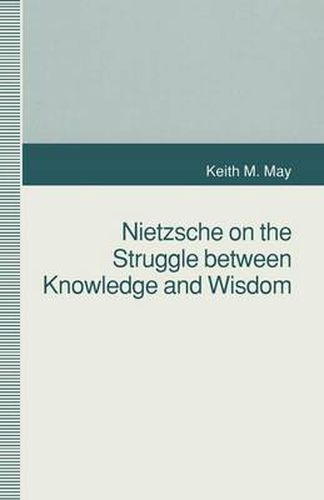Readings Newsletter
Become a Readings Member to make your shopping experience even easier.
Sign in or sign up for free!
You’re not far away from qualifying for FREE standard shipping within Australia
You’ve qualified for FREE standard shipping within Australia
The cart is loading…






This title is printed to order. This book may have been self-published. If so, we cannot guarantee the quality of the content. In the main most books will have gone through the editing process however some may not. We therefore suggest that you be aware of this before ordering this book. If in doubt check either the author or publisher’s details as we are unable to accept any returns unless they are faulty. Please contact us if you have any questions.
In his notes Nietzsche refers to ‘The Struggle between Science and Wisdom exhibited in the ancient Greek philosophers’. Nietzsche’s own view about ‘science’ (learning) was to the effect that, at its best, it should be greatly respected yet always tested by the demands of personal wisdom. Keith May considers the meaning and implications of Nietzsche’s belief in relation to philosophy up to the time of Aristotle, and then its bearing on modern (essentially nihilistic) attitudes, to which it supplies something of an antidote.
$9.00 standard shipping within Australia
FREE standard shipping within Australia for orders over $100.00
Express & International shipping calculated at checkout
This title is printed to order. This book may have been self-published. If so, we cannot guarantee the quality of the content. In the main most books will have gone through the editing process however some may not. We therefore suggest that you be aware of this before ordering this book. If in doubt check either the author or publisher’s details as we are unable to accept any returns unless they are faulty. Please contact us if you have any questions.
In his notes Nietzsche refers to ‘The Struggle between Science and Wisdom exhibited in the ancient Greek philosophers’. Nietzsche’s own view about ‘science’ (learning) was to the effect that, at its best, it should be greatly respected yet always tested by the demands of personal wisdom. Keith May considers the meaning and implications of Nietzsche’s belief in relation to philosophy up to the time of Aristotle, and then its bearing on modern (essentially nihilistic) attitudes, to which it supplies something of an antidote.